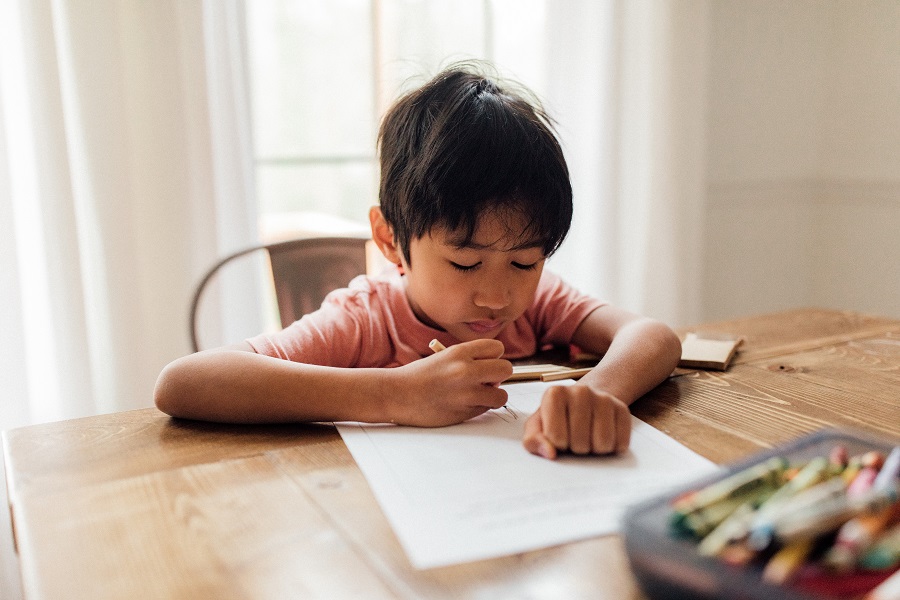
By Dr Jing Du
The Department of Finance, University of Birmingham
Due to the COVID-19 pandemic, schools in many countries had to close and move from classroom-based to remote/online teaching since early 2020. According to BBC research, the number of children registered for home education increased by 75% in the first eight months of the current school year. Some parents and councils attribute this phenomenon to ’Covid anxiety’. In fact, home education in the UK has a history of more than 50 years since the late 1970s.
One of the main reasons – other than as a result of the pandemic – for a rise in home schooling is the inherent defects of the mainstream school education. A large number of classes restrict personalised teaching to support meeting the individual needs of students are easily overlooked. Besides, uniform academic standards make it difficult to maximise the individual potential of some students.
Another reason is that some children have special educational needs or they cannot go to school due to physical reasons. Sometimes, parents’ educational philosophy, religious beliefs and cultural concepts are different from school education. They may believe that it is helpful to establish a better parent-child relationship with their children via home education. Moreover, the development of technology is another driving factor. Information and communications technology (ICT) tools are being used to provide learning content in digital formats which facilitate the home education. These tools include products and services such as different platforms, mobile apps, activities, e-books, games, videos, audio clips, digital software, learning lab equipment, and online tutoring.
Some opponents of home education believe that social skills and social development of children will be negatively affected because they are educated at home, separated from the school environment, and lack of interaction between peers. However, I believe that peer interaction is not the key to social skills, and school is not the only way for children to have contact with various aspects of society.
Some people believe socialisation is purely about social activity. Children need to engage in traditional extracurricular activities, such as playing with their friends and playing sports. Others argue socialisation means social exposure and influence. Children need to get in touch with different cultures, values, and groups of people. Home education does not mean living in an isolated family environment; children have plenty of time and opportunities to participate in social activities and interactions, such as visiting museums, attending various extracurricular clubs, taking dance classes, art classes and field activities, and participating in parties organised by the Home-education Alliance. These are effective ways to improve children’s social skills and social development.
In addition, home-education may be in the best interests of children with special educational needs and/or disabilities. There are a number of issues that come with these children receiving education in mainstream schools, including lack of knowledge and understanding on special educational needs from teachers, the failure of communication between schools and parents, and discrimination/bullying by other children. This unfavourable school environment can have negative influences on the health and well-being of the child and makes more difficult for these children to be able to complete their studies like other students. Emam and Farrell (2009) also find that a majority of teachers are unwilling to put in the extra effort to address the special educational needs of these children.
The fundamental purpose of education for children with SEN is to cultivate future self-care and living ability and to develop a sound and healthy personality. Parents can maximise favourable factors and minimise unfavourable ones to conduct purposeful and pointed education based on their children’s physical and psychological characteristics. Generally speaking, the education from parents is more easily accepted by children.
In addition, parents can understand and know the children’s emotional changes better. Therefore, they are able to intervene and help their children, which can effectively improve the child’s initiative and enthusiasm. At the same time, parents can lead the children to participate in various communication and interactive activities via home education to help them to establish a self-confident and self-reliant personality. In order to home educate their children, the parents have to sacrifice their time and finances. However, the stress of the whole family can be lessened considerably and the health and emotional well-being are improved significantly.
Finally, given all the benefits and the increasing needs of home education, the government could gradually regulate home education. In view of the increase in the number of people receiving education at home, home education should be an integral part of the children’s education system. Educational authorities should formulate and continuously improve the construction of the home education system, including the rights, duties and responsibilities of parents and the relevant institutions, the basic standards of parent education ability, the practice requirements of family teachers, government registration and follow-up methods, academic evaluation, etc. The development and use of children’s social platform software and mobile apps should be encouraged. Different formats of educational material should be used to improve interaction, provide real-time feedback, and enhance learning processes.
References:
Emam, M. M., and P. Farrell. 2009. “Tensions Experienced by Teachers and their Views of Support for Pupils with Autism Spectrum Disorders in Mainstream Schools.” European Journal of Special Needs Education 24 (4): 407–422.
The views and opinions expressed in this article are those of the author and do not necessarily reflect the official policy or position of the University of Birmingham.
